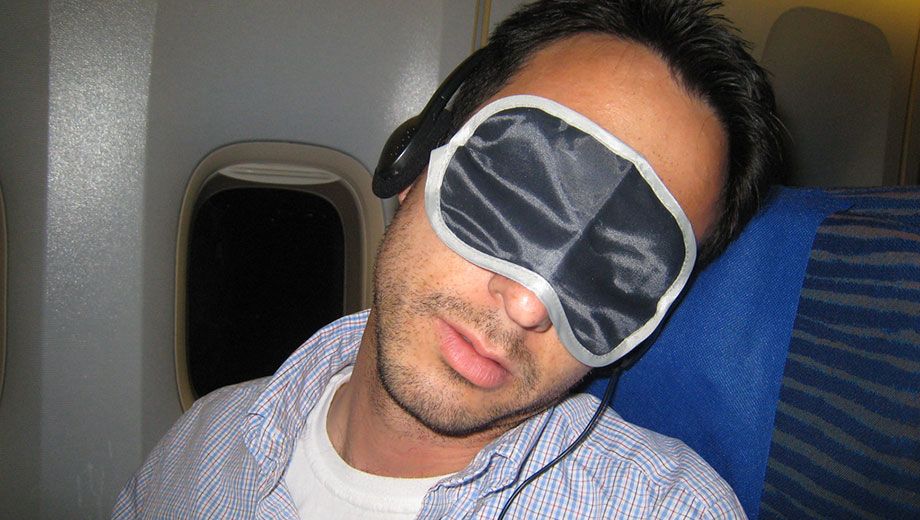Flying for a dozen hours in the bone-dry, stale air of a jet packed with hundreds of other people can take its toll on anyone -- but there are some simple ways to keep yourself feeling a bit fresher for your destination.
1. Look after your eyes and nose
Air humidity in-flight is so low (typically 10%) that your mucous membranes (eyes, nostrils) will dry out and become sore over the many hours of flying.
This factor alone can make jetlag feel much worse at the other end -- for example, having a congested nose for a week while those mucous membranes repair themselves is an irritation you can do without.
If your nasal passage mucous membrane cracks in-flight — common on long-haul flights — you also open the body up to a much easier pathway for germs to get in.
Given you're on a plane with hundreds of other people, this is something you should really take seriously.
Bring saline nasal spray or saline gel with you, and use it regularly throughout the flight, from soon after take-off. Using it once you realise your nose is painfully dry and cracked will be too late.
2. Moisturise
Whatever your views on moisturiser normally, you really need it on a long international flight.
Apply moisturiser liberally and often — and not just to your face. (It can also be helpful to apply bath oil before the flight which can create more of a barrier on the skin than standard moisturiser.)
The same applies to your lips, which will also dry out in the plane. Pack a lip-balm.
3. Drink plenty of water
It sounds so obvious, but the amount of water the airline provides you — usually a 600ml bottle and a few more small cups of water throughout the flight — is not enough to counter the dehydrating effects of long-haul flying.
Many planes have taps on the wall near the back of the plane where you can refill your water bottle.
4. Get a better sleep
Travellers all have different approaches to medicating themselves for a flight — opinion is split between whether alcohol on board is a good or a bad thing. Many people say it calms the stress you find yourself in after the battle through the airport to get on the plane, while others say it simply compounds dehydration and makes you feel worse.
However, a common thread among frequent long-haul travellers is the value of sleeping pills. They can make a 21 hour flight feel like a six hour flight. Talk to your doctor about whether it would be appropriate to get a small quantity for the flight and to help you sleep through the first few nights at your destination.
Many people find half the recommended dose of a sleeping tablet works well for them and doesn't give them the lethargic feeling the next day that a full dose might. (Obviously, don't drink any alcohol on the flight if you want to take a sleeping tablet.)
5. Watch your cabin baggage weight
Although it's certainly possible to smuggle through more cabin baggage weight than the 7 kg limit (and we're not going to give you a lecture on the immorality of doing so, as we do it too!), watch how you handle it.
If you're lifting your cabin baggage in and out of the overhead locker several times during a flight, it's surprisingly easy to strain your shoulder and back muscles.
That can quite literally be a pain at your destination, especially if you've managed to squeeze in 15 or 20 kg into your roll-aboard.
Follow Australian Business Traveller on Twitter: we're @AusBT


Hi Guest, join in the discussion on Five easy ways to stay healthy on international flights